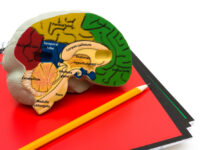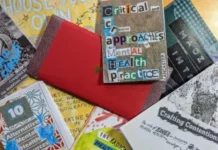Research News
ADHD Drugs Linked to Cardiomyopathy
Presented at a major cardiology conference, the study suggests a 57% increased risk of heart muscle disease after 8 years of stimulant use.
Antidepressant Trials Last Eight Weeks, So Why Do We Take Them for Years?
The studies are of short duration and are riddled with methodological issues like unblinding and failure to assess withdrawal.
Direct Cash Aid Linked to Long-Term Mental Health Gains in Youth, New Study Finds
Structural solutions like cash transfer programs could be key to reducing emotional distress where traditional treatment falls short.
Nearly All Guideline Authors for Mood Disorders in Japan Took Industry Money
A new study reveals that 93% of authors writing treatment guidelines for depression and bipolar disorder received payments from the drug companies whose products they promoted.
A Glossary for Reimagining Mental Health Ethics, From ‘Tokenism’ to ‘Justice’
Psychiatry still sidelines survivors in research and care. A new framework says that has to change.
What Happens When Voice-Hearers Share Stories Without Judgment
Peer-led Hearing Voices Groups offer a rare space for meaning-making and mutual understanding outside the biomedical model.
Being Anxious About Socializing Is Not Autism
Those who self-diagnose with autism don’t have ASD traits or behaviors, but do exhibit higher social anxiety and avoidance scores than those with clinician-diagnosed ASD.
Why Neighborhood Matters in Psychosis Risk: Psychosis Is Not Just in the Brain
A growing body of research reveals how segregation, social exclusion, and structural racism shape brain development and psychosis risk, especially for youth.
Involuntary Psychiatric Detention Linked to Numerous Harms
A sweeping review uncovers widespread harms and only one dubious benefit of forced psychiatric hospitalization.
What Happens When We Treat Nature as Essential to Mental Health
A new study shows that fostering nature connection in youth promotes well-being, empathy, and pro-social values.
Trapped by the Target: Rethinking Goals in School Therapy
While some students find therapy goals motivating, others describe feeling stuck, judged, and disheartened.
Psychiatric Drugs “A Crude Form of Chemical Restraint”
Mental health nursing has a key role to play in helping people discontinue the drugs, writes Timothy Wand.
Most People Want Therapy That Gets to the Root, but Are They Getting It?
A new national study shows that while the public favors depth-oriented therapy, most are not receiving it—and cost, access, and tech platforms may be to blame.
The Birth of Macropsychology: Psychologists Call for a New Discipline to Tackle Systemic Harms
A growing field explores how laws, policies, and power shape mental health far more than internal traits or disorders.
How Psychology Is Used to Justify Inequality in Schools
Critics say dominant psychological models obscure structural racism and reinforce deficit views of students.
From Sleep Loss to Suicidality: How Nighttime Light Affects the Mind
The study suggests that poor city planning and excessive artificial lighting could be factors in the rise of mental health issues and advocates for eco-friendly, sustainable urban design to mitigate these effects.
Animal Study: SSRI Neurotoxic in Pregnancy
Researchers: Fetal exposure to vilazodone hampers neurodevelopment and leads to "long-lasting neurodevelopmental impairments."
Why the Standard PTSD Model Fails War Refugees in Ukraine
Critical psychologists argue that clinical trauma discourse overlooks the political realities shaping Ukrainian refugees’ suffering.
Can Opposing Views on Eating Disorders Coexist? A Dialectical Approach to Knowledge and Care
Researchers propose a new way of understanding eating disorders—one that values both scientific data and lived experience without forcing a singular perspective.
Antidepressants in Dementia Patients Increase Risk of Death and Fractures
A large-scale study reveals that antidepressant use is linked to faster cognitive decline in dementia patients, raising concerns about their widespread prescription.
FDA-Approved Genetic Algorithm Fails to Predict Opioid Abuse
Researchers warn that the AvertD test may “give clinicians and patients false and potentially harmful information.”
The Clinic of Solidarity: A Human Rights-Based Approach to Madness
In contrast to prevailing psychiatric interventions, researcher Elan Cohen advocates for a clinical approach rooted in solidarity, human rights, and psychoanalysis.
From Healing to Commodity: The Global North’s Approach to Psychedelic Therapy
A new study critiques how Western psychology has stripped psychedelics of their communal and transformative potential, turning them into marketable, individualistic treatments.
Can Mad Zines Revolutionize the Mental Health Curriculum?
A new article details the Madzines Research Project, which calls for integrating zines into the social work curriculum to include lived experience, creative expression, and alternative perspectives on mental health.
Structural Adversity and Suicide: The Mental Health Field is Asking the Wrong Questions
A new study finds that addressing food insecurity, housing instability, and parental incarceration could prevent suicide and self-injury in marginalized youth.

































